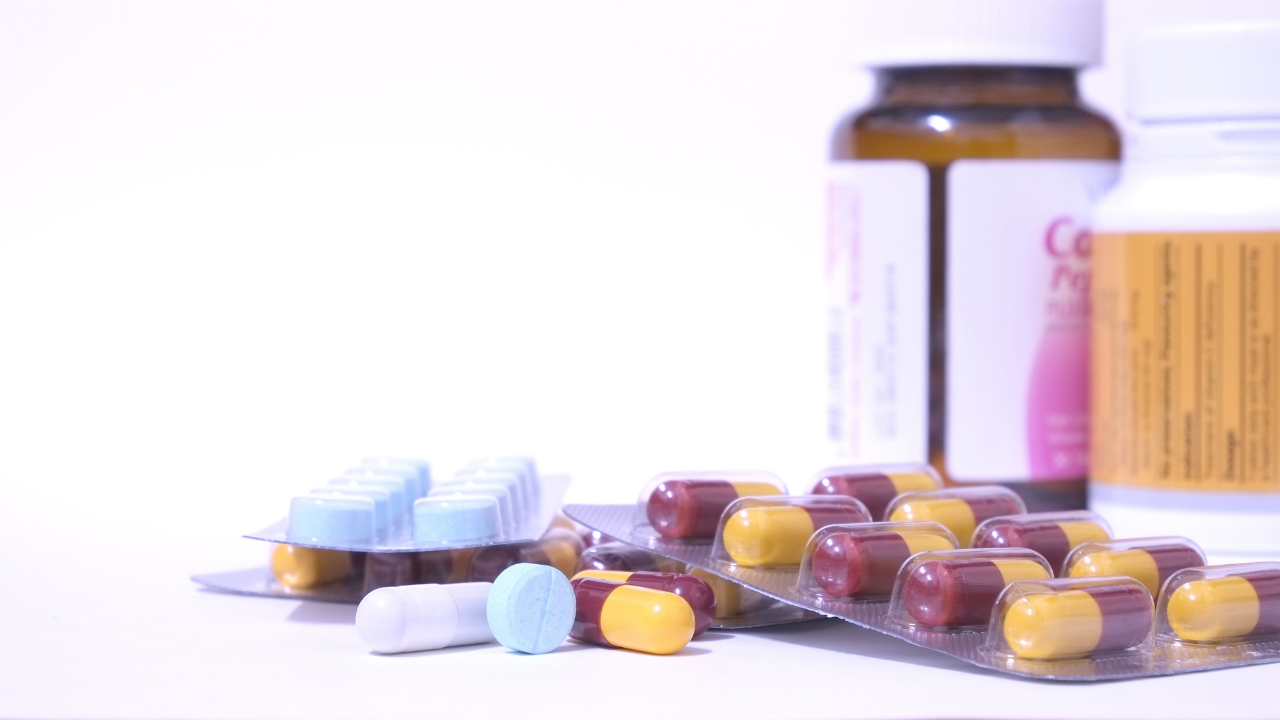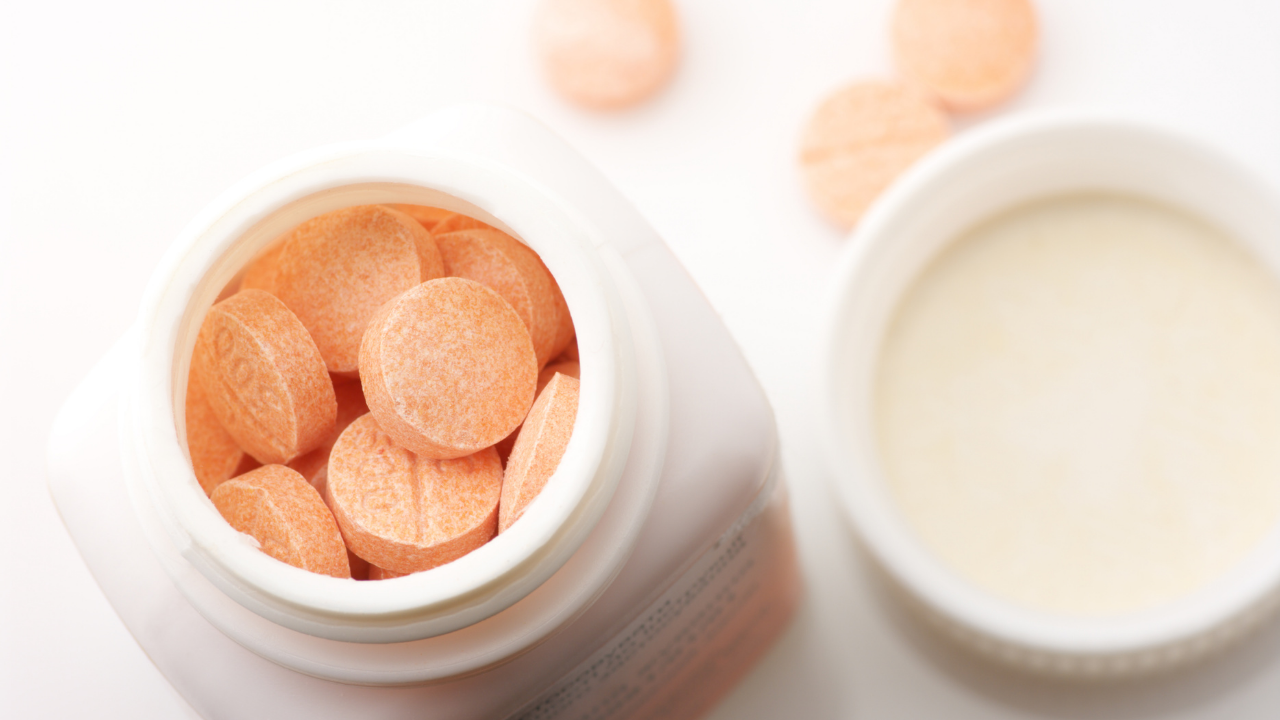How to Choose Quality Supplements (+ Red Flags to Look For)

Are you on my email list? If not, you are missing important information like this. Subscribe here.
According to Harvard Health, Americans spend about $35 billion on supplements every year.
And I’ll bet you probably have a few in your kitchen cabinet.
Supplements are just that - a bridge to nutrient gaps that cannot be fulfilled by a healthy diet. However, most people are looking to them as ‘quick fixes’ and simply replacing pharmaceuticals with ‘neutraceuticals’, aka supplements, not realizing that they can be potentially harmful.
Most of my clients come to me on a ton of supplements because of their Functional medicine practitioners - but instead of addressing root causes, many of these supplements are just being used as bandaids e.g. adaptogens for 'adrenal dysfunction' instead of asking why someone might have adrenal dysfunction and fixing that. People are effectively swapping pharmaceuticals for 'neutraceuticals' under the guise of 'functional medicine', and that is not true root cause medicine.
BEFORE you start any supplement, ask:
- Do I really need to take this supplement?
- What am I taking this for?
- Who’s monitoring me while I take them and when should I stop them?
While it is possible to get all of our vitamins and nutrients through our diet, this has become difficult in our modern society, so I get the need for supplements sometimes. I also take them! The correct supplements can be very helpful and aid healing.
But have you ever thought about the regulation of these supplements? How can you tell if a supplement is good quality, or contaminated? How do you know which supplement brands you can trust?
What is frightening is that some supplements I've reviewed contain a high level of heavy metals like lead - not exactly health-promoting! So when it comes to supplements, less is really more - take only what you need, but do not over-supplement thinking you are doing yourself a favor. You most likely will not be.

Who Needs Supplements?
For starters, how do you know if you actually need to take a supplement?
I always recommend consulting with your primary care physician before adding any supplement to your diet because you don’t know how this supplement could interfere with other medications.
Most healthy adults do not need a wide variety of supplements every day. What you need depend on your diet, your age, your activity levels, special conditions (e.g. pregnancy, children), what medications you are on.
Therefore, I do not believe there is a blanket rule of one single supplement that is good for everyone, even when it comes to multivitamins and prenatal. It’s always best to get a recommendation from an experienced and knowledgeable professional who knows YOUR full health history.
You can go to your primary care doctor and discuss blood work to see if you need a specific supplement e.g. Vitamin D, iron studies, B12, or more functional markers of cellular B12 status like homocysteine and methylmalonic acid, red blood cell zinc, and magnesium, omega 3 index - these may not be covered by insurance so check first.
Now... if you need a supplement, how do you choose a good one? Let’s take a look!
What’s in Your Supplements?
Do you know what’s in your daily supplements?
If you don’t, you’re not alone. Most people taking supplements and vitamins do not take the time to read the label or research the active ingredients present. Oftentimes, I see clients taking multiple forms of the same vitamin in different products e.g. Vitamin A in an immune support formulation, and then again in a skin support formulation - it is important to ensure you are not doubling up and overdosing on the same vitamin.
The non-existent regulation
On top of that, many supplements and vitamins are contaminated, but due to little FDA regulation, they are still available on the market today. You can see the start of a long and incomplete list by the FDA here, which includes the most commonly tainted supplements: supplements for weight loss, muscle building, and sexual enhancement.
Supplements can be contaminated with heavy metals, bacteria, and pesticides before they hit the store shelf.
FDA Regulation of Supplements
At the moment, there is little regulation of supplements by the FDA. This means that there can be discrepancies in the ingredient label, the batches can differ from bottle to bottle, and there is no guarantee that a supplement is safe to consume.
Because of this lack of testing provided by the government, third-party testing and certifications have become the primary source of comfort to monitor supplements.
Third-party testing is not required by law, but it is becoming more common to uphold public health standards. Some factors they test for are consistency in the product, potency, purity, and free from harmful chemicals and substances. 
4 Red Flags to Look for When Buying Supplements
Red Flag 1: No Testing or Certification
First and foremost, always avoid supplements that are not tested or certified from a reputable source, unless you know the person who made it and trusts them. There is no telling what is in the supplement or if it will be effective.
Red Flag 2: Food Dye or Coloring
In 2020, a study tested the presence of added food dye to children’s and prenatal vitamin gummies that showed degradation of Red No. 40, Blue No. 1, and Yellow No. 6, which are linked with neurobehavioral behavior in children.
While these gummies may seem like a fun and easy way to get your daily dose of vitamins, they might be doing more harm than good. I generally avoid gummies anyway just because it is also hard to ensure the concentrations of active ingredients you DO want are consistent.
Red Flag 3: GMO ingredients
Avoid anything that has been genetically modified because they can require heavy use of toxic pesticides and herbicides including glyphosate which has been linked to many health conditions including cancer and digestive complaints.
Red Flag 4: Fillers and bulking agents
Excipients are sometimes necessary and not all are harmful, and this topic is highly debated as most have been deemed to be ‘generally considered to be safe’ but some people can have sensitivities, experience indigestion (yup, if you experience indigestion after your supplements, fillers may be responsible) and animal studies on certain ingredients e.g. silicone dioxide show possible harm. I try to avoid gelatin (since most are derived from factory-farmed animals), hydrogenated oils, propylene glycol, silicon dioxide, titanium dioxide, amongst others.
It is impossible to avoid them altogether because these are necessary for capsules and tablets to ensure the powder does not cake and stays intact. So, I sometimes still take a supplement with the above ingredients, but I take a pragmatic approach and ask myself if a supplement is needed first, how much do I need to take, and weigh up the risks and benefits. I stop it as soon as I don't need it anymore.
For example, if it is something I take sometimes, I'm ok with a little excipient here and there. If it’s something I take daily, or something I need a lot of, I try to look for one without the above-mentioned excipients if I can.
Liquid formulations generally do not contain these excipients, however, you need to then look out for preservatives, ‘natural flavors’ or artificial flavors, sugar, color and dyes.
Now that we know what to avoid… let’s take a look at...

What to Look For When Buying Supplements
Look for reliable certifications - e.g. GMP (Good Manufacturing Practices) certified
Your prenatal should also have the GMP (good manufacturing practices) on the label, which ensures the highest quality manufacturing to create a consistent and quality vitamin.
Other standard certifications are Consumer Lab, NSF, or USP Certifications (they also provide a list on their websites).
You can find more information about the different supplement certifications and testing here.
5 Questions To Ask Yourself Before Buying a Supplement
If you really want to get to know what you’re putting into your body, here are some questions to ask about supplements you take a lot of on a long-term basis.
How were the raw materials sourced?
You can source supplements either directly from a farm or the main source of the vitamin/mineral, or they come from an intermediary that gathers from several suppliers.
Personally, I prefer a direct farm or source because the quality control is more robust.
How were the plants/herbs grown?
I recommend looking for a least an organic and regenerative plant or herb. Consider where that plant is endemic and naturally grown for the most bioactive components.
How did the company validate the potency and purity of the finished product?
The amount of active ingredients in supplements can vary (scarily) widely which means you might a) not be getting the amount you think you are b) getting too much e.g. in this report, melatonin concentrations were found to wildly vary.
Try to find a 3rd party certificate of analysis or testing certification as mentioned above and make sure it contains the amount of active ingredient it says it has on the label.
Have they tested for contaminants like heavy metals, mold/microbial, pesticides?
If they do have testing, take a look at what they’ve tested for. Are they testing for contaminants like heavy metals? Or mold and pesticides? If not, this could be a red flag. In California, many supplements carry the Prop65 warning label - meaning they potentially contain heavy metals over the recommended levels.
We cannot avoid heavy metals completely - they are part of our earth's crust. It is normal for our everyday food to contain some. However, levels are increasing at a discerning rate, and if you already have clogged detox organs or naturally cannot detox very well, these metals can start to accumulate.
What is Prop65?
Prop65, California’s Safe Drinking Water and Toxic Enforcement Act of 1986 requires the state of California to keep an updated list of chemicals known to cause cancer and reproductive issues. Products that contain levels of these substances above the threshold carry a Prop65 warning label that reads like this:
" “WARNING: This product contains a chemical known to the State of California to cause cancer.”
Scary, I know.
This does not necessarily mean the product is dangerous - but if you see that label, you should look into how high the levels are by requesting the COA (certificate of analysis) from the supplement company - and if you are already toxic.
Most supplements I see in California now carry this warning label - as I said, the mere presence of this label does not mean it is automatically bad - it just means you should contact the company and get the testing report and calculate how much you are taking daily to see if it breaches safe limits - your doctor who prescribed the supplements should be able to help guide you on this.
If you’re not a California resident, I invite you to look into what measures your state has in place and directly request the COA from companies you buy supplements from.
What supplements are in my kitchen cabinets?
As far as supplement brands go, I don't believe in blanket recommendations for supplementation, and I have seen harm due to this practice. So I NEVER recommend any supplements without a consult first.
In addition, just because one supplement is good by a brand does not mean that ALL their products are good across the board, so I look at each supplement on a case-by-case basis. This is why I’ve provided you with the method above so you can look for better products yourself.
Generally, the brands I like are Seeking Health, Integrative Therapeutics, Metagenics, Thorne Research, Premier Research. These are usually only available only through practitioners so you can ask your practitioner about them. Please do not buy them from Amazon - there are so many counterfeits there.
Please note that I’m not recommending these for you, I am only sharing what we do at home - before you start any supplement, always check with your doctor first.
Also, not all of these are perfect - as I said, I take a pragmatic approach and some of these are not things I take a lot of, so they may not be GMP certified, but I know the company well and trust the quality.
I've provided my affiliate discount codes here if I have them - this means that I make a small commission when you use these codes to save on your purchase. I appreciate your support so much as this helps me to continue providing free educational content here on my blog and social media platform.
Supplements I take these regularly:
- Vitamin C - this is a seasonal one - I am taking this daily right now when there is increased environmental threats (virus) and sun exposure. I use Quicksilver or Seeking Health liposomal Vitamin C. The reason I like these is that they are both liposomal for better absorption. The downside is they both need refrigeration.
Another liposomal vitamin C I take regularly is the Pique Immune Complex (affiliate discount code: platefulhealth) - it contains elderberry too (which may not suit everyone, especially those with autoimmune conditions) - however, I love it for the added antioxidant and immune-supporting benefits.
2. Vivolife B12, D3, and Omega 3 I take these almost daily because of my plant-based diet. Use code: ‘Platefulhealth’ for 10% off. I also like the Methyl B complex from Quicksilver when I need extra B vitamin support.
I also use these as needed, but not every day:
- Magnesium - Tri-magnesium by Integrative Therapeutics, or Optimal Magnesium by Seeking Health use code ‘DrVIVIAN’ at checkout.
- Zinc AG by Metagenics
- Taproot Strong Lung Syrup - fire season and winter lung support
- Seeking Health Optimal sleep code ‘DrVIVIAN’.
- Leefy organics use code Platefulhealth for 15% off your first order for full-spectrum turmeric and ginger elixir - which helps us with inflammation, pain. We haven't used ibuprofen or Tylenol in 4 years now!
- Aspen green CBD - code: ‘Plateful’ 20% off
- Tasha Rose remedies - Victory Elixir - for immune support. I also love her dry cough syrup for lung support in the winter. code platefulhealth
- Life Cykel - I like adding their Lions mane, Cordyceps, and Turkey tail to my matcha because they don't taste of mushrooms - 'platefulhealth for 10% off'. I love medicinal mushrooms but they are not suitable for everyone e.g. pregnancy/children.
- Real Mushrooms - I love their Reishi and 5 defenders. Use code ‘Platefulhealth’ for 10% off.
- Vitex - for progesterone support in the latter part of my cycles, I don't use it every cycle, it depends on my symptoms and lifestyle. I use the Vitex from Wise Woman herbs
*I also have some supplements which I use as part of ongoing detox support from my previous toxicity (not listed here as they are specialists and deserve time and in-depth education, far beyond the scope of one blog post.
I believe in getting educated before you embark on a detox protocol. Many of the big brands of supplements used for detox contain the very toxicants you do not want in your body - including popular brands trending on Instagram promoted by health influencers, so be careful where you get your information and always ask to see the COA for yourself. If the company tells you they cannot share their COA with you - do not take their supplements!
If you are interested to learn more, I share them inside my Detox Right course).
I hope you now feel empowered to choose your next supplement judiciously - if you found this article helpful, be sure to join my email list so you get more health education straight into your inbox, and be sure to share it with someone who takes a lot of supplements!

